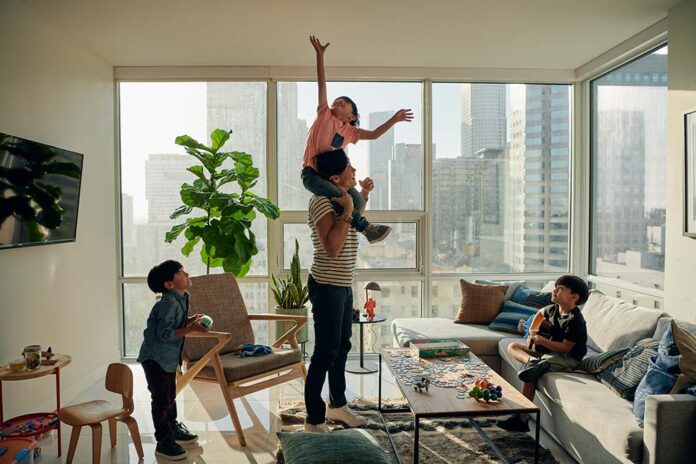Remote and hybrid work have untethered many people from the need to be in an office every day, driving the biggest change to travel since the advent of commercial flying. For the first time, millions of people can now live anywhere.
On Airbnb’s platform, we have seen:
- One out of every five gross nights booked in Q3 were for stays of 28 days or longer.
- Nearly half of nights booked in Q3 were for stays of at least seven days, up from 44 percent in 2019.
- In the 12 months through September, more than 100,000 guests booked stays of 90 days or longer.
- More than 300,000 people applied for 12 openings to live anywhere on Airbnb for a year and are providing insights to help inform our product development and upgrades.

Airbnb CEO and co-founder Brian Chesky announced that he too will live on Airbnb. Starting in Atlanta, Chesky will stay in people’s homes in new towns or cities every few weeks, and return to San Francisco in the same way that many remote workers are returning regularly to the cities where they work in order to collaborate with colleagues. Chesky living on Airbnb will help to improve the design of the experience for people who can now live anywhere.
This Live Anywhere trend is like decentralization of living, and it’s changing the identity of travel. Among the trends Airbnb expects to see are:
1. People will continue to spread out to thousands of towns and cities, and they will stay for weeks, months, or even longer.
- 100,000 towns and cities around the world have had an Airbnb booking during the pandemic.
- 6,000 places had their first-ever Airbnb booking.
- On New Year’s Eve, nearly 4.5M guests stayed on Airbnb in more than 53,000 places around the world with over 40 percent of nights booked were more than 1,000 miles away from guests’ origins.
- In Q3 2021, over 85 percent of long-term stay nights booked in the Philippines were for stays in urban destinations. Metro Manila, Metro Cebu and Baguio emerged as the top most searched destinations for long-term stays.
2. More people will start living abroad, others will travel for the entire summer, and some will even give up their leases and become digital nomads.
- People want to explore new countries: Before the pandemic, international arrivals exploded from 25M in 1950 to more than 1.4B in 2019, according to UNWTO.
- On Airbnb, family long-term stay nights grew 75% from summer 2019 to summer 2021.
- The share of Airbnb long-term stay bookers who used their stays to lead a nomadic lifestyle grew from 2020 to 2021—from 9% to 12%.
- In the Philippines, 45% of Filipinos polled want to rent out their homes and travel.
3. Cities and countries will compete to attract these remote workers, and it will lead to a redistribution of where people travel and live.
- More countries are changing their visa and tax rules, and more than three dozen countries currently offer some sort of digital nomad visa scheme.
- Airbnb is already helping a range of urban and rural destinations in the United States let remote workers try living there, from Chicago to West Virginia and Northern Maine.
